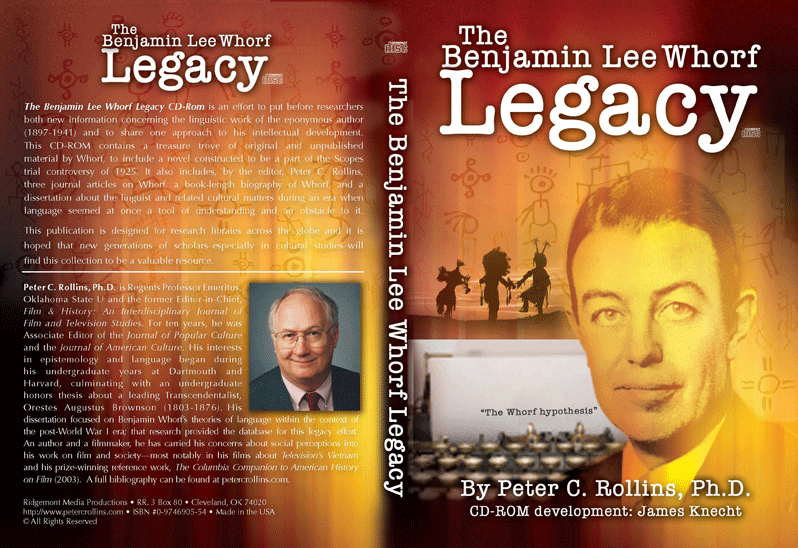
The
NOTABLE
PSYCHOLOGISTS
Benjamin Whorf Timeline
BIRTH/DEATH DATES
April 24, 1897 – July 26, 1941
PROFESSIONAL TIMELINE
-
attended the Massachusetts Institute of Technology
-
majored in chemical engineering
-
received a bachelor of science degree (1918)
-
-
moved from MIT into a position as a fire prevention engineering trainee at the Hartford Fire Insurance Company (now the Hartford Financial Services Group)
-
enrolled at Yale University (where top linguist (and Whorf’s would-be mentor) Edward Sapir took a job teaching) as a part-time, non-degree grad student (1931)
-
collaborated with Sapir in anthropological linguistics to develop the Sapir–Whorf hypothesis a.k.a. “the linguistic relativity principle” or “Whorfianism” (first discussed by Sapir in 1920; gained popularity in the 1950s)
-
argues against the view that the categories and distinctions of any given language are natural and given by external reality and posits language as a finite array of formal (lexical and grammatical) categories that group an infinite variety of experiences into usable classes, vary across cultures, and, as a guide to the interpretation of experiences, influence thought
-
basically proposed that language is not only a part of culture, influenced by the groups of human beings who construct it, but also an influence on culture and thought
-
-
-
married Celia Inez Peckham (1920)
-
made substantial contributions of mayan and aztec linguistics
WRITTEN WORKS
-
Language, Thought, and Reality (1956)



J.G.




Unit Most Likely To Cover
Psychologist
The contributions of Benjamin Lee Whorf would most likely fall under Chapter 8, as they involve linguistic relativity, which is where the linguistic difference in grammar and usage among different people cause them to view, experience, and conceptualize the world differently. His contributions could also, however, fall under Chapter 6, as language must be learned. Thus, what people learn could also affect how they view, experience, and conceptualize the world.
S.R.

Nature vs.
Nurture Stance
There is no one strong stance that Benjamin Whorf falls under, however if one placed him into a category it would be nurture. He proposed the linguistic relativity hypothesis. He said languages determine the ways people think. This would relate to how one's environment affects their personality. Benjamin believed that people of one culture had a certain number of words fora word while another culture can have more or less words for that same word.
S.P.



Key Terms/Concepts
-
Linguistic relativity hypothesis-Benjamin Whorf, he proposed that one's language determines the nature of one's thought. His example was an eskimo (many words for snow) vs english (one word for snow)
-
Linguistic Universals--the parts of language that occur in all languages(color, past tense, present tense, future tense)
-
Sapir–Whorf hypothesis-the idea that differences in the way languages encode cultural and cognitive categories affect the way people think, so that speakers of different languages will tend to think and behave differently depending on the language they use
-
Linguistic Determinism-the idea that language and its structures limit and determine human knowledge or thought, as well as thought processes such as categorization, memory, and perception.
-
Norms-expectations or rules of behavior that develop out of a groups values
-
Sanctions-positive or negative reactions for adheading to or breaking a norm
-
Folkways-norms that are not strictly enforced
-
Pidgins-when 2 languages that came into contact formed 1 language
-
Superstratal-the more dominant language when two languages come together of unequal power.
-
Substratal-the less dominant language when two languages come together of unequal power.
-
Addstratal-when languages come together that are of equal power.
-
Language Index-the association between speech and the person speaking it. How the cultures manipulate language in a certain way.
-
Linguistic Subordination Principle-the farther a group is from the mainstream then it will follow that the group's language will be seen as inferior to dominant language. Not because their language isn't perfectly fine, but because their language is used by them.
-
Protype theory- people make category judgments by comparing new instances to the category's prototype
S.P.





Psychologists’ Contributions,
Research, Experimentation
-
Contributions
-
Linguistic relativity hypothesis (theory)
-
language influences thought
-
-
One of the fathers credited to founding this theory. The the other father was Edward Sapir.
-
one of the most influential linguists in history
-
published a breakdown (gramamr) of the Hopi language, Nahuatl dialects, Maya hieroglyphic writings
-
was first to try reconstructing Uto-Aztecan languages.
-
-
published many articles in prestigious linguistic journals about how different linguistic systems affected the thought systems/ habitual behaviour of people speaking different languages
-
-
Research
-
Was originally a chemical engineer, but dedicted his life to studying the linguistics hypothesis with Sapir at Yale University
-
researched the principles for linguistic relativity for most of his life
-
worked on linguistic theory with reports on insurance losses
-
-
Experimentation
-
did field work on Native American languages in the United States and Mexico for the last 10 years of his life
-
Won funding to go to Mexico in 1930 for field work/ experiments and learned about the Aztec/ Nahuatl language.
-
A.M.


School of
Thought/ Perspective
Since Benjamin Whorf proposed the linguistic relativity hypothesis, he is known as a major linguist, which does not really correspond with the level of thought and perspective. The category he fits in is psycholinguistics. The closest school of thought that he could fall under is psychoanalytic.
A.M.
Example of Linguistic Relativity
